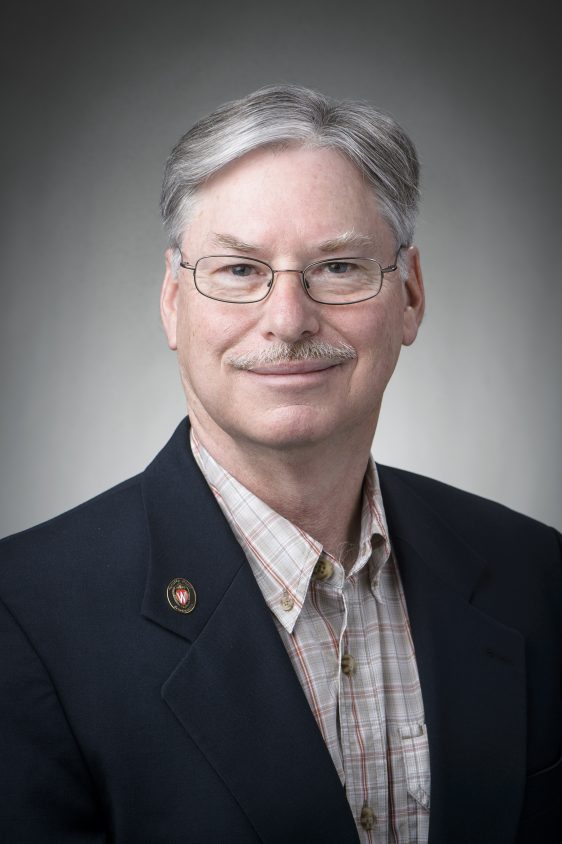Director, UW Space Place
Department of Astronomy
Hometown: Madison, WI
Testimonials
Extremely relatable and charismatic, Dr. Lattis presented a perfect blend of technical information and general knowledge.
– Nicole, Edgerton Public Library
Talks:
Eyes on the Skies: The Current Night Sky, What to Watch for, How to Observe it
This talk introduces the stars, constellations, and interesting objects of the current season sky. We’ll talk about observing the brighter planets and how to find them in the night sky, along with other objects suitable for amateur observing. We’ll also feature any important eclipses, meteor showers, or other interesting astronomical events visible in the near future, as well as observing tips and the astronomical use of telescopes and binoculars.
Honey, I Shrunk the Galaxy! How the UW’s Astronomers Measure the Milky Way
Between 1930 and 1936, UW astronomers developed a new astronomical technique that led to a major re-evaluation of the size of our Milky Way Galaxy. Beginning with the astronomical debates of the 1920s, this talk will show how their work established key features that underpin the modern concept of a galaxy.
Approximate Length of Talk: Variable
Chasing the Stars: Washburn Observatory and Wisconsin's Explorations of the Universe
Washburn Observatory began as a typical Nineteenth Century astronomical research institution and was halfway to obsolescence by 1920, but a generation later Wisconsin astronomers were launching their instruments toward the stars. Based on the recent book, Chasing the Stars(Wisconsin Historical Society Press, 2024), this talk tells the story of how our traditional observatory evolved onto the frontiers of modern astrophysics and space astronomy.
Galileo: Frequently Asked Questions
We all know Galileo is famous, but why? Didn’t he invent the telescope, prove that the Earth orbits the Sun, and wasn’t he then imprisoned by the Inquisition because of his discoveries? You might be surprised at the answers to these and other questions about Galileo and the history of astronomy.
